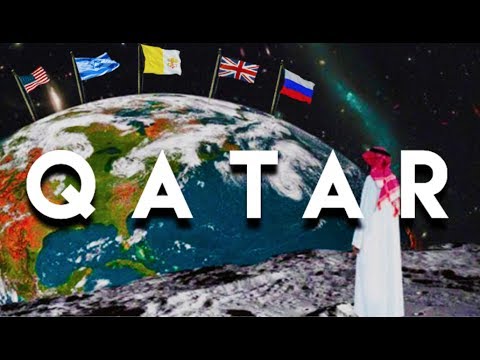A deadline passed and nobody blinked, so now a high-stakes geopolitical feud in the Middle East looks set to stretch further into the summer.
The confrontation between Qatar and its neighbors worsened on Wednesday as four Arab nations vowed to press ahead with the punishing air, sea and diplomatic blockade they imposed one month ago after they accused Qatar of financing terrorism and working too closely with Iran. Qatar rejected an ultimatum that expired on Tuesday to meet a long list of demands.
Meeting in Cairo, foreign ministers from the four blockading countries — Saudi Arabia, Egypt, the United Arab Emirates and Bahrain — said they were “disappointed” by the response to their demands, and stepped up their criticism of Qatar, which they say is meddling in the affairs of their countries.
“Qatar’s role as a saboteur can no longer be forgiven,” said Egypt’s foreign minister, Sameh Shoukry.
The four countries have issued 13 demands, including the closing of Al Jazeera, Qatar’s influential television channel, and, more broadly, the abandonment of Qatar’s foreign policy, which includes support for a wide variety of Islamist factions.
In London, Qatar’s foreign minister, Sheikh Mohammed bin Abdulrahman al-Thani, accused his country’s foes of “clear aggression” and said Qatar was ready for a lengthy standoff, having developed new supply routes for food, construction materials and other imports. He singled out Saudi Arabia and the Emirates as the main foes of Qatar, accusing them of seeking to make it surrender its sovereignty.
That, he said, “Qatar will never do.”
The uncompromising statements offered little hope for a speedy resolution to a rift that opened up on June 4 with the sudden blockade on Qatar. The crisis has worried many Western countries that are concerned about critical military, business and energy interests, and are fearful that the region is tipping into a dangerous and unpredictable situation.
The confrontation on Wednesday could have grown even more serious. But defying expectations, the ministers gathered in Cairo avoided imposing new sanctions on Qatar, and instead sought to reframe their demands as a series of broad principles about combating extremism and not destabilizing each other’s government.
Confusion over the United States’ stance on the dispute may be exacerbating the problem.
President Trump called leaders on both sides of the ill-tempered dispute on Sunday, but he has left little doubt that he is siding firmly with Qatar’s opponents. American officials say that Mr. Trump sees the crisis as an opportunity to force changes in Qatar’s maverick foreign policy, and to bolster his close alliance with the rulers of Saudi Arabia and Egypt. In Cairo on Wednesday, the ministers thanked Mr. Trump for his “firm stance on extremism and terrorism.”
But Mr. Trump is at odds with Secretary of State Rex W. Tillerson, who has relationships with Persian Gulf leaders on all sides of the dispute from his time as the chief executive of Exxon Mobil, and who has been skeptical of the demands being pressed by the Saudis and Emiratis. Another complicating factor is the American air base in Qatar, which plays a central role in the war against the Islamic State in Syria and Iraq.
The tension between Mr. Trump, who appears determined to make an example of Qatar, and Mr. Tillerson, who has taken a more pragmatic stance, has hobbled efforts by American officials to resolve the dispute. Mr. Trump, some officials say, seems intent on helping the Saudis as they press their demands for action against Al Jazeera and the Muslim Brotherhood in Qatar, even if Qatar is unlikely to ever agree to them.
The Saudis and their allies could step up the sanctions against Qatar by seeking to expel it from regional bodies like the Gulf Cooperation Council or the Arab League, or by forcing banks and other businesses in the gulf to choose sides.
Qatar seems intent on leveraging its immense wealth to ride out the storm. On Tuesday, it said that it was significantly increasing its production of natural gas, the fuel that has made it rich, over the next five years.
In Cairo, the blockading countries said they would meet in Bahrain soon to consider their next steps. “Such significant decisions cannot be taken swiftly,” said the foreign minister of Bahrain, Khalid bin Ahmed al-Khalifa. “The decision will be taken at the right time.”
Source: nytimes.com





